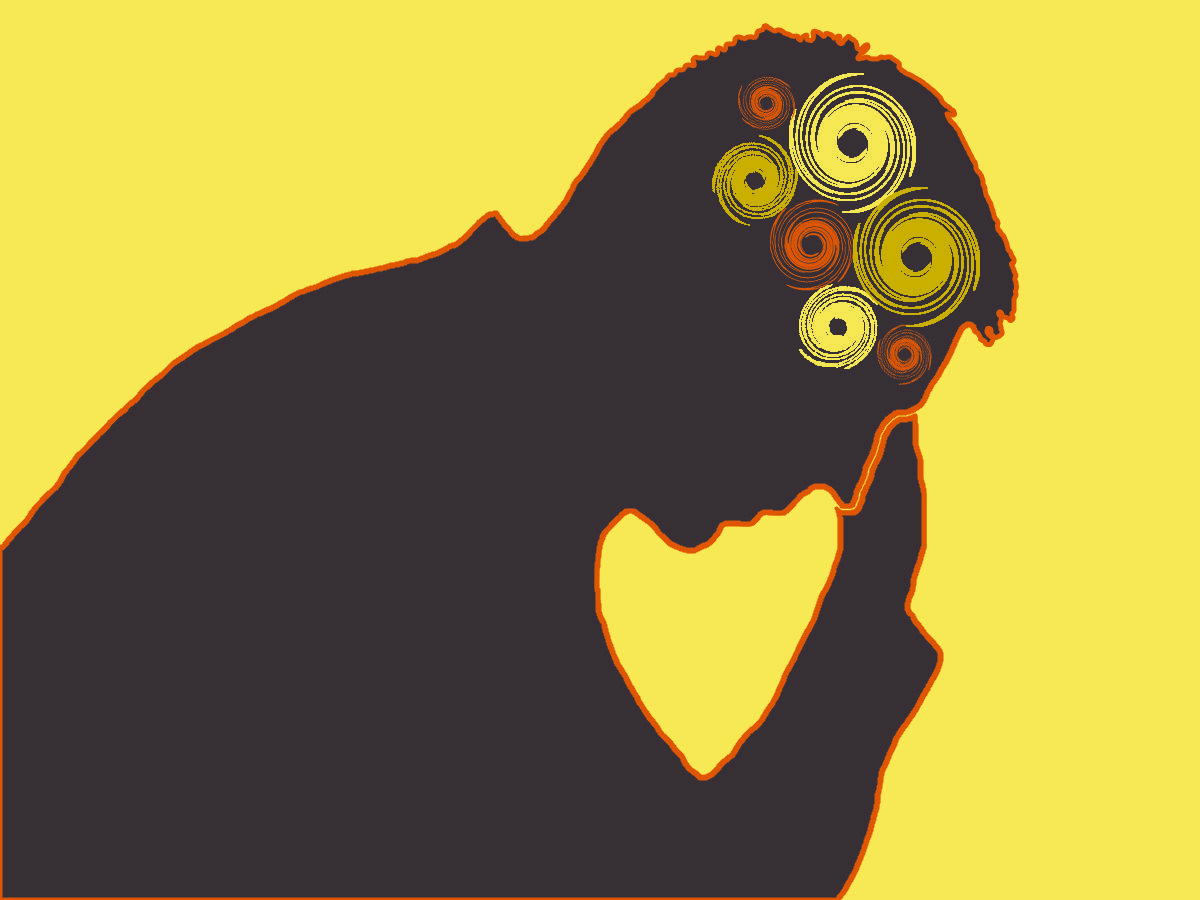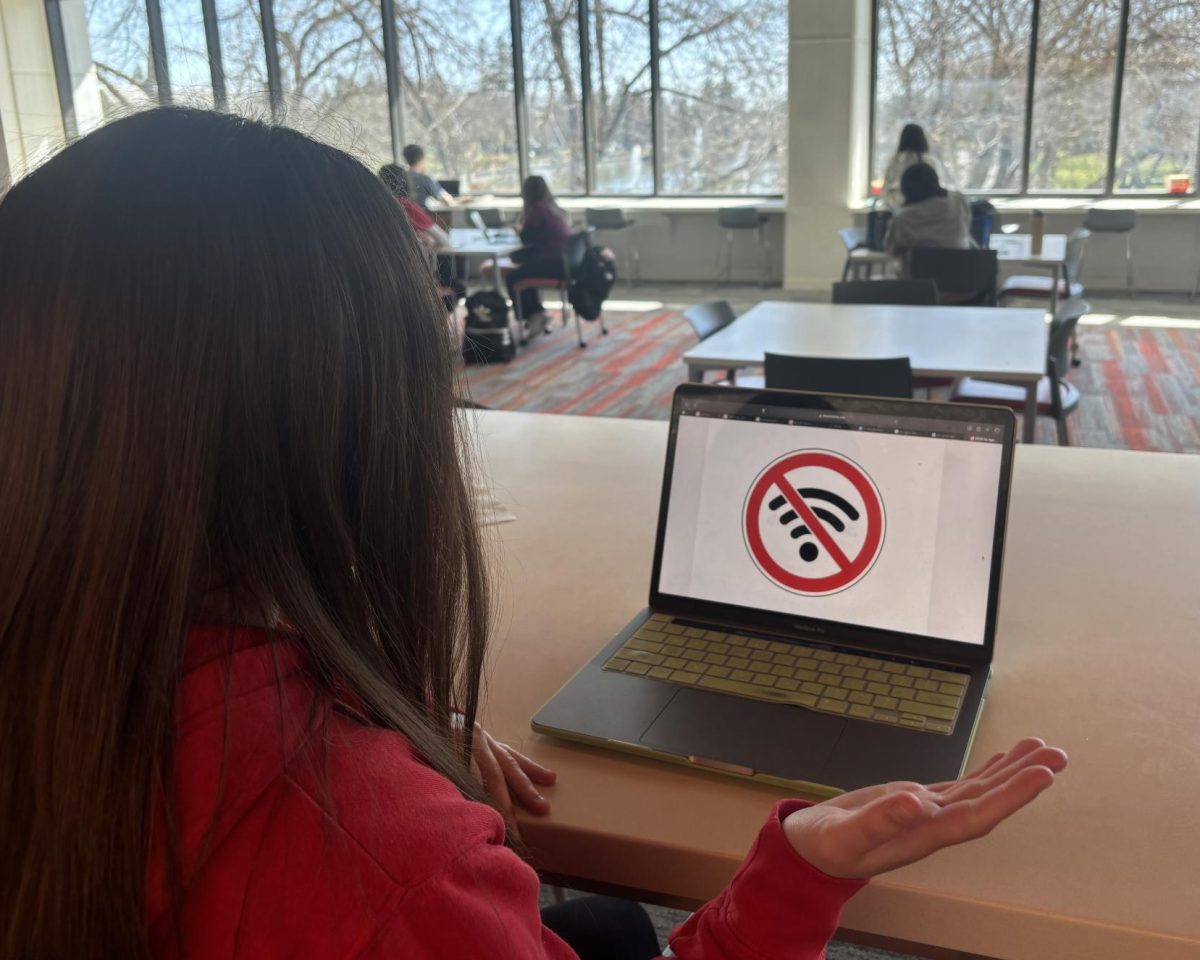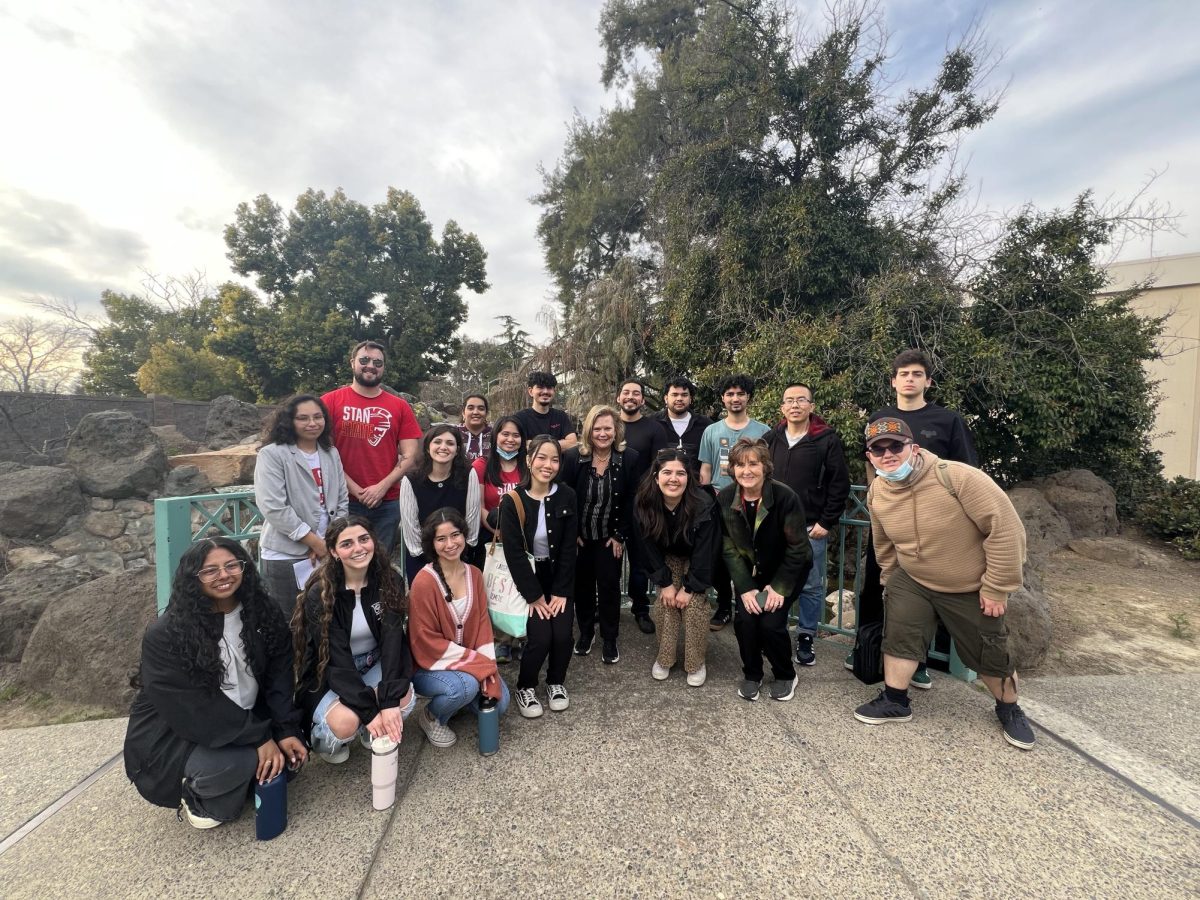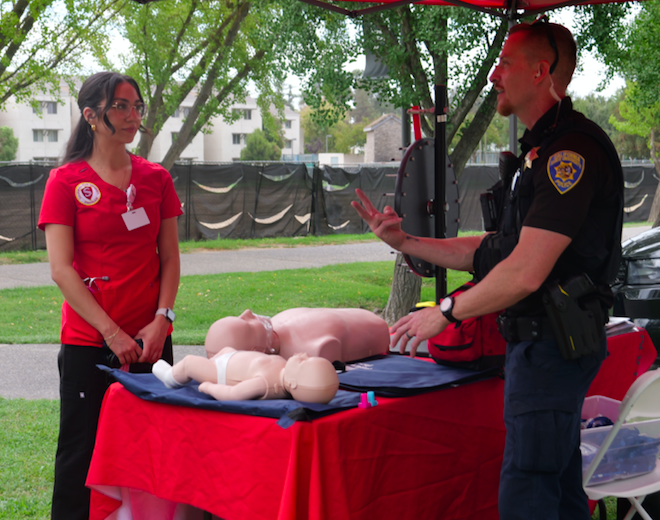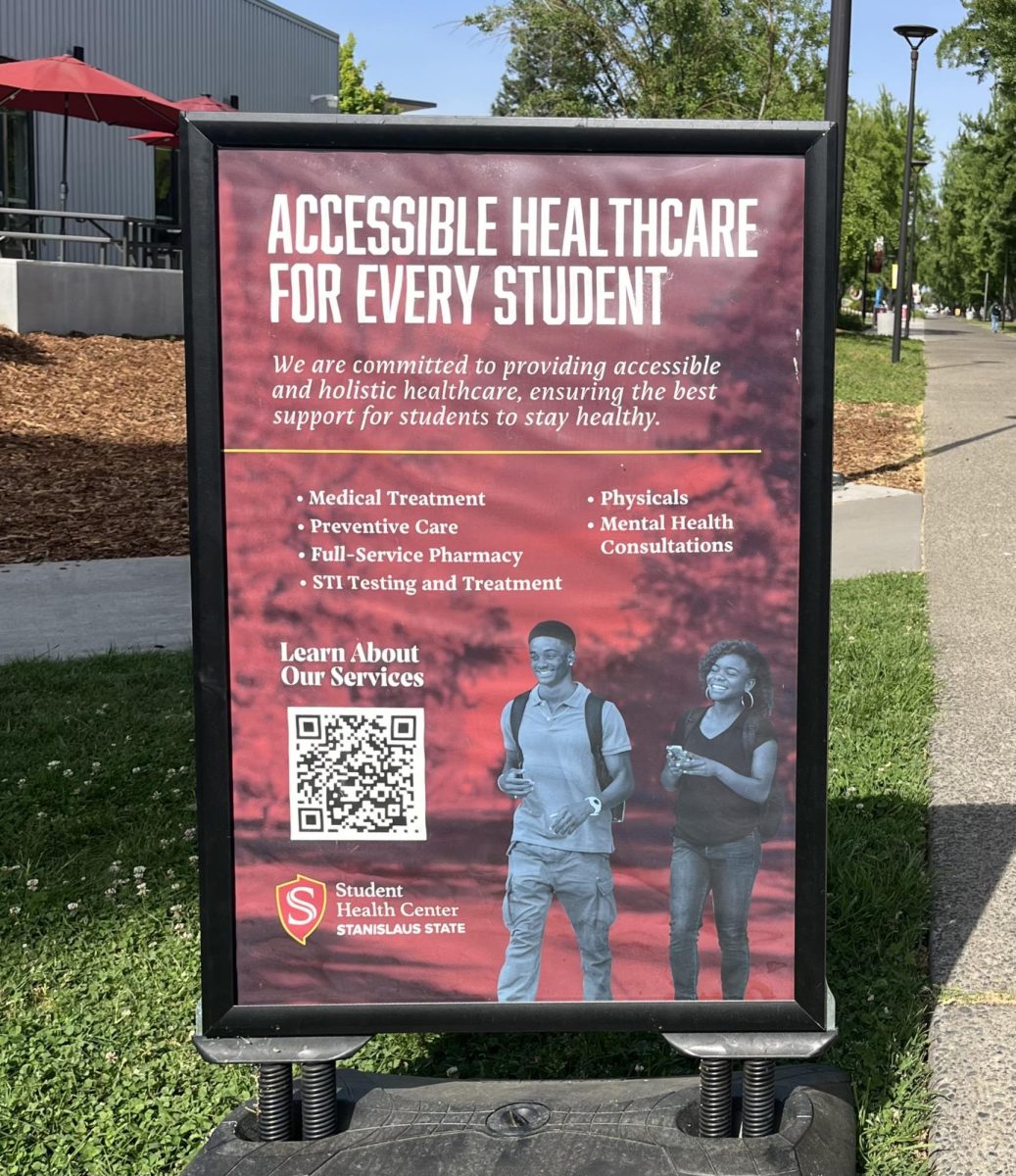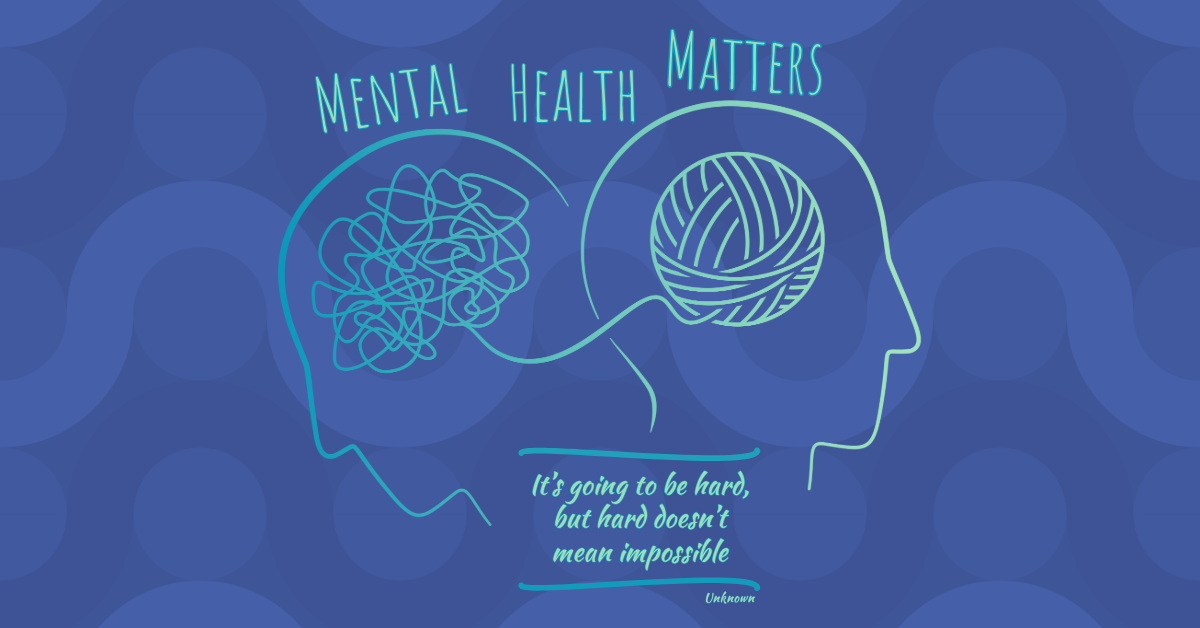Licensed Clinical Social Worker (LCSW), Lee Bettencourt, from the Psychological Counseling Services (PCS) at California State University, Stanislaus (Stan State), presented a workshop for students to help them effectively manage anxiety and depression in their lives.
The Managing Anxiety and Depression workshop was held in Mary-Stuart Rogers (MSR) 260 on Oct. 19 from1:00 p.m. to 2:30 p.m.
Bettencourt has been doing counseling for 30 years and has been working at Stan State for 25 years. During the workshop, he discussed crucial topics on assertiveness/relationship skills, problem-solving, relaxation exercises and even maintaining emotional wellness.
The purpose of the workshop was to help students gain more information in terms of the definitions, what the typical symptoms are, what the characteristics are for people who generally experience anxiety and depression and how to manage and cope with it.
Rut Centeno (freshman, Biology) attended the workshop with her sister.
“I attended the workshop because my sister suggested that I go, and I thought I could use some advice for future preventative measures. What I will be taking from the workshop is the visualization relaxation method to distress and lower anxiety,” Centeno added.
Categories:
Anxiety and Depression workshop bring light to mental health dialogue
Gagan Kaur
•
October 27, 2017
As we take on the many roles in our lives, it is important that we also learn how to take care of ourselves and develop good coping mechanisms. (Illustration by Maggie Lunt)
Graduate student, Tamara Centeno, also explains the reason she attended the Anxiety and Depression Workshop.
“I was feeling very anxious because I had a big presentation coming up. Because of this anxiety I was losing confidence in myself. I wanted to get as many tips and tools as I could in order to calm myself down,” Tamara Centeno said .
She continued ssaying, “something that I learned was that the feeling of anxiety, for what I was experiencing, is absolutely normal and even necessary. It shows that I care about doing well. I learned that I have to normalize my anxiety and provide myself with more self-care.”
Anxiety is a continuum in which people experience different types of anxiety. Most people who do experience anxiety, experience a generalized anxiety disorder. The general feature is excessive fear, an emotional response to either a perceived threat or real threat, even if it is all in the mind.
The other types of anxiety are obsessive-compulsive disorders and trauma related anxiety disorder, which could stem from traumatizing and stress inducing experiences like an unexpected death or a car accident.
Many people confuse normal stress for anxiety. Bettencourt explains the difference saying, “basically normal stress, people experience stress over taking tests, having to speak in public, or having to give a presentation, it is pretty normal to get more anxious about that but the difference is that, that goes away after the event and the persons emotions go back down and turn into a normal state of coping.”
He adds: “for people with anxiety disorders that usually does not change, it is often much more prevalent and frequent in terms of the anxiety they experience. Their baseline is just more higher in terms of that sense of constant kind of dread and worry.”
Common symptoms of anxiety include not being able to relax, constant state of worry and fear, catastrophic thinking by going into worse-case scenarios, feeling dizzy, lightheaded, shaky, heaviness in chest, heart pounding and indigestion.
Likewise, normal sadness and depression are often confused as one. Although depression can cause feelings of sadness, it is more prolonged and can lead to a variety of emotional and physical problems that do not go away, whereas normal sadness is temporary and goes away after that triggering event passes.
Symptoms of depression include but are not limited to, changes in appetite (weight loss or gain), loss of energy or increased fatigue, difficulty thinking, concentrating or making decisions, thoughts of death or suicide, loss of interest or pleasure in activities once enjoyed.
The workshop touched on keys to emotional wellness that also included a breathing and relaxation exercise to help manage anxiety and depression and foster good coping mechanisms.
Self perception, having a sense of self and valuing your strengths and abilities is imperative. Also, being less critical and having more positive/realistic self-expectations will add to your emotional wellness.
Bettencourt said that “A lot of times, a prominent feature, especially with depression, is isolation. A person who usually feels like ‘I just don’t want to talk to anybody’ or ‘I feel like I can’t carry on a conversation’ tends to withdraw and that just makes it worse.”
He continued adding: “Being socially connected is real important, you want to work on maintaining positive relationships, you don’t want to neglect your friends. A lot of times students feel like they have so much to study, they are studying 24/7, they can’t hang out with friends, so they tell them no. Don’t do that, you got to stay connected and have time with friends, that is important.”
For additional information on the various workshops or Psychological Counseling Services, visit www.csustan.edu/counseling or call (209) 667-3381.
0
Donate to Signal
Your donation will support the student journalists of California State University, Stanislaus. Your contribution will allow us to purchase equipment and cover our annual website hosting costs.
More to Discover

